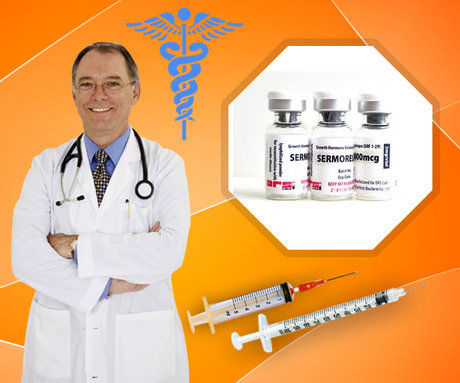 For the body and mind to function optimally, it's absolutely necessary to get enough sleep every night.
For the body and mind to function optimally, it's absolutely necessary to get enough sleep every night.
Though the underlying functions of sleep are still largely a mystery, we are continually learning more about how the body benefits from healthy rest, and we also learn more about the dangers of not getting enough sleep.
One particularly troubling study shows that inadequate sleep may contribute to Alzheimer's risk.
One of the central markers of Alzheimer's disease is the accumulation of Beta-Amyloid plaque. Beta-Amyloid is a byproduct of normal neurological processes.
While we are sleeping, the body has methods to eradicate this waste, but sleep deprivation hinders these essential clean-up processes. If Beta-Amyloid accumulates into neurological plaque, it harms inter-neural communication.
Video Link: https://vimeo.com/291315373
Video Download: Major Alzheimers Risk To Continued Sleep Deprivation
Video Stream: Major Alzheimers Risk To Continued Sleep Deprivation
Measuring Beta-Amyloid Levels in Humans in Association with Sleep Deprivation
At this point, most of what we know about Beta-Amyloid accumulation is the result of animal testing in mice, but a recent study was developed to detect its effects on humans.
Constituents of the National Institute on Alcohol Abuse and Prevention studied the brains of twenty healthy participants to break ground on the link between Beta-Amyloid accumulation and sleep deprivation.
Individuals ranged from 22-72 years of age and were monitored via PET Scan.
A significant advance in Alzheimer's research was the discovery that 18F-Florbetaben, a radiotracer, targets Beta-Amyloid, providing a reliable means to identify Beta-Amyloid concentrations in the brain and neurological system.
This study was published last month in the journal PNAS.
Comparing the Rested Brain to the Sleepless Brain
In this study, each subject had their brains scanned twice — once after a full night's rest,  and once after around 31 hours of sleep deprivation.
and once after around 31 hours of sleep deprivation.
After only a single all-nighter, participants experienced a 5% increase in Beta-Amyloid concentrations.
The two areas where Beta-Amyloid was found to accumulate most were in the Hippocampus and the Thalamus.
This is an important revelation because these two parts of the brain are strongly impacted by Alzheimer's Disease.
Researchers also discovered that mood was impacted based on the severity of Beta-Amyloid accumulation, meaning that even these relatively minor increases in Beta-Amyloid build-up led to dysfunction in the Thalamus and Hippocampus.
Both of these regions are strongly associated with conditions related to mood instability.
This study is exceptionally promising for the field of Alzheimer's Research, and it will also inevitably benefit many patients with sleep disorders because current evidence suggests that Beta-Amyloid Accumulation also contributes to sleep disorders.
Getting Good Rest is Important for Health — Other Health Issues Associated with Lack of Sleep
Most adults require 7-9 hours of restful sleep to maximize wellness. Not getting enough restful sleep can increase the risk of a wide variety of issues that can impair health and even increase mortality risk.
For one, you can get sicker easier if you don't get enough sleep. The body uses nightly rest as a means to bolster the immune system and fight off illness and infection.
The Alzheimer's study highlights the importance of sleep concerning mood. Individuals that don't get enough sleep are more likely to experience irritability, depression, and anxiety. Getting less than 6 hours of sleep per night is a substantial contributing factor to both depression and anxiety.
Sleep Deprivation and Metabolism
 Not getting enough sleep can also cause you to gain weight since lack of sleep screws with the hormones associated with hunger and satiation.
Not getting enough sleep can also cause you to gain weight since lack of sleep screws with the hormones associated with hunger and satiation.
Ghrelin concentrations increase, which increases feelings of appetite, and Leptin concentrations fall, which makes it take longer to feel full.
So lack of sleep makes you get hungry more often and tend to overeat when you get hungry.
Sleep also contributes actively to a healthy metabolism. Men and women that don't get enough sleep are more likely to have issues with Low Insulin Sensitivity and Type-2 Diabetes.
The symptoms of Sleep Deprivation on the body's metabolic processes share a strong resemblance to Insulin Resistance.
Sleep Deprivation and Heart Health
 One of the most dangerous things about sleep deprivation, especially when you get older, is its impact on cardiovascular health.
One of the most dangerous things about sleep deprivation, especially when you get older, is its impact on cardiovascular health.
If you don't get enough sleep, even for a single night, this can harm blood pressure and heart rate.
Furthermore, insufficient sleep increases inflammatory markers in the heart and cardiovascular system.
One study demonstrated that restless sleep increased Stroke/Heart Attack Risk by 18%, and issues falling asleep, increased risk by 27%. Sleep Apnea also compounds these risks.
If you believe that you are struggling with Sleep Apnea, there are Sleep specialists nationwide that can assist you in diagnosis and treatment.
Sleep Deprivation, Low-T, and Sex Drive
For men, Sleep Deprivation can have frustrating effects on sexual function. Hormones like Testosterone and HGH are produced in elevated concentrations while we sleep.
Any sleep disruptions that you experience can lead to problems related to Hormone Balance.
Also, poor sleep causes Cortisol Levels to rise, along with other stress hormones, which drains the body's ability to produce Testosterone.
If you've had trouble generating sexual interest in your partner, consider your sleeping habits. If you've been sleeping poorly, this could be the cause of your underlying sexual issues.
References
Lack of sleep may be linked to the risk factor for Alzheimer’s disease
Sleep deprivation increases Alzheimer’s protein
Contact Us For A Fast And Professional Response

- The Other Aspect of Dieting – Removing Chronic Stressors From Your Life [Last Updated On: February 9th, 2025] [Originally Added On: September 9th, 2020]
- The Flaws of Six Popular Diets [Last Updated On: October 20th, 2024] [Originally Added On: September 20th, 2020]
- Purchase Sermorelin Acetate Injections Online [Last Updated On: February 8th, 2025] [Originally Added On: September 23rd, 2020]
- Eating Right On a Low-Glycemic Diet [Last Updated On: September 2nd, 2024] [Originally Added On: October 1st, 2020]
- The Benefits of Intermittent Fasting [Last Updated On: September 28th, 2024] [Originally Added On: October 2nd, 2020]
- Eat Healthier with White Flour Alternatives [Last Updated On: November 18th, 2024] [Originally Added On: October 3rd, 2020]
- Ten Common Contributors to Obesity that Make it Hard to Lose Weight [Last Updated On: March 5th, 2025] [Originally Added On: October 4th, 2020]
- How Can Sermorelin Enhance Your Life? Losing Weight and Battling Premature Aging With Sermorelin [Last Updated On: April 1st, 2025] [Originally Added On: October 5th, 2020]
- Benefits and Risks of HGH Therapy: 2018 Update [Last Updated On: April 15th, 2025] [Originally Added On: October 6th, 2020]
- Have You Heard About the 21st Century Breakthroughs in Hormone Replacement Therapy? [Last Updated On: December 25th, 2024] [Originally Added On: October 7th, 2020]
- The Importance of Omega-3 Fatty Acids [Last Updated On: October 17th, 2024] [Originally Added On: October 8th, 2020]
- The Relationship Among Testosterone, Obesity, and Alzheimer's Disease [Last Updated On: November 17th, 2024] [Originally Added On: October 9th, 2020]
- Should You Choose the Ketogenic Diet? [Last Updated On: September 19th, 2024] [Originally Added On: October 13th, 2020]
- HGH and Insulin: The Primary Agents of Energy Bio-Availability [Last Updated On: March 24th, 2025] [Originally Added On: October 14th, 2020]
- How Can Women Maximize HGH Production? [Last Updated On: April 5th, 2025] [Originally Added On: October 18th, 2020]
- Micro Nutrients Versus Macro Nutrients [Last Updated On: January 11th, 2025] [Originally Added On: November 4th, 2020]
- Some of the most effective Weight Loss Injection and Diet Injection Programs [Last Updated On: October 24th, 2024] [Originally Added On: November 6th, 2020]
- Information About Chelation Therapy [Last Updated On: April 9th, 2025] [Originally Added On: November 9th, 2020]
- Seven Ways to Help You Burn Calories Faster and More Effectively [Last Updated On: March 28th, 2025] [Originally Added On: January 21st, 2021]
- Don’t Eat These Foods When Taking Sermorelin Acetate for HGH Deficiency [Last Updated On: February 14th, 2025] [Originally Added On: February 3rd, 2021]
- Understanding Aerobic vs. Anaerobic Exercise [Last Updated On: September 25th, 2024] [Originally Added On: March 4th, 2021]
- Physician’s Fact Sheet: Vitamin E [Last Updated On: January 10th, 2025] [Originally Added On: March 8th, 2021]
- Naturally Losing Weight with Lifestyle Changes Keeps the Weight Off for Good [Last Updated On: September 16th, 2024] [Originally Added On: March 27th, 2021]
- The Health Benefits of the Amazing Strawberry [Last Updated On: February 9th, 2025] [Originally Added On: May 8th, 2021]
- Need Better Sleep? Try Eating Pistachios Before Bed! [Last Updated On: January 21st, 2025] [Originally Added On: February 16th, 2022]
- Three Kinds of Body Fat and How They Impact Your Health [Last Updated On: November 2nd, 2024] [Originally Added On: April 12th, 2022]
- Pistachios: You’re Not Nuts [Last Updated On: January 4th, 2025] [Originally Added On: August 3rd, 2022]
- 7 Surprising Things That Mess With Your Hormones [Last Updated On: February 26th, 2025] [Originally Added On: September 5th, 2022]
- Adding Cranberries to Your Diet can Really Add Zest – and Health – to Your Life. [Last Updated On: December 30th, 2024] [Originally Added On: January 10th, 2023]
- Raspberries – Delicious Portal to Shining Good Health [Last Updated On: January 1st, 2025] [Originally Added On: January 18th, 2023]
- Study Shows Cialis and Viagra Users have 25% Lower Early Death Rates [Last Updated On: March 14th, 2025] [Originally Added On: February 19th, 2023]
- Introduction: Understanding the Multifaceted Nature of Obesity [Last Updated On: March 2nd, 2025] [Originally Added On: March 2nd, 2025]

















